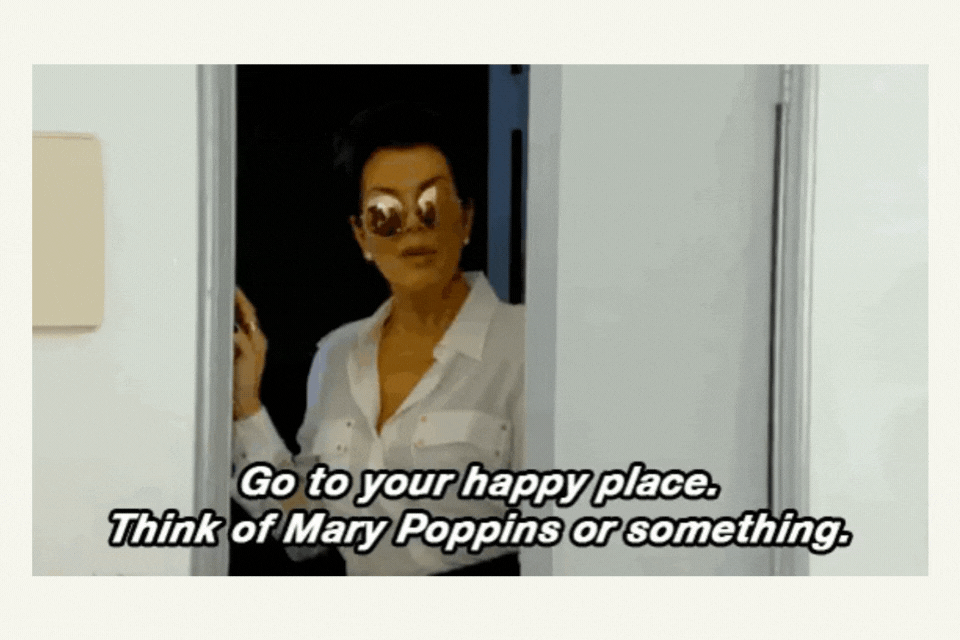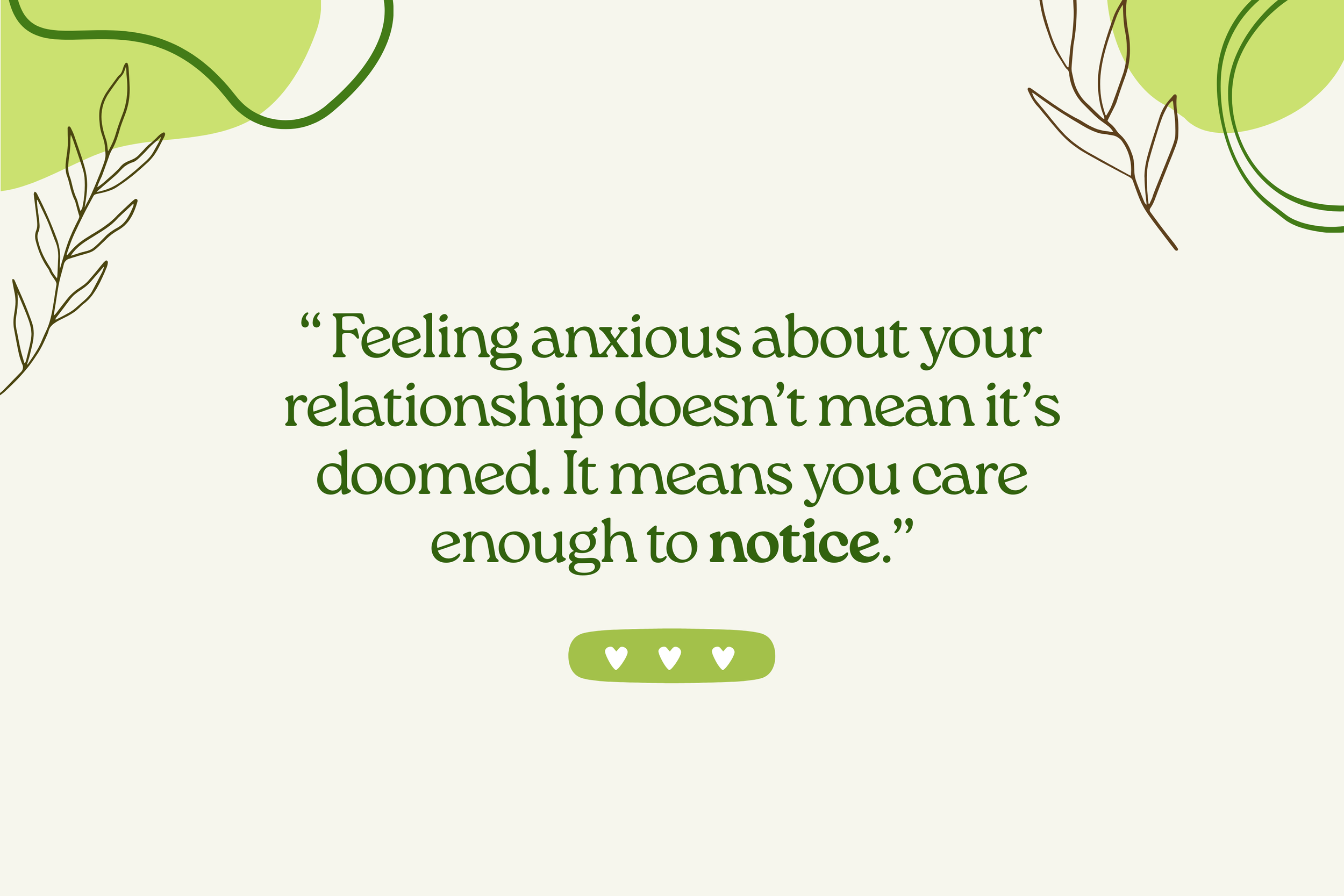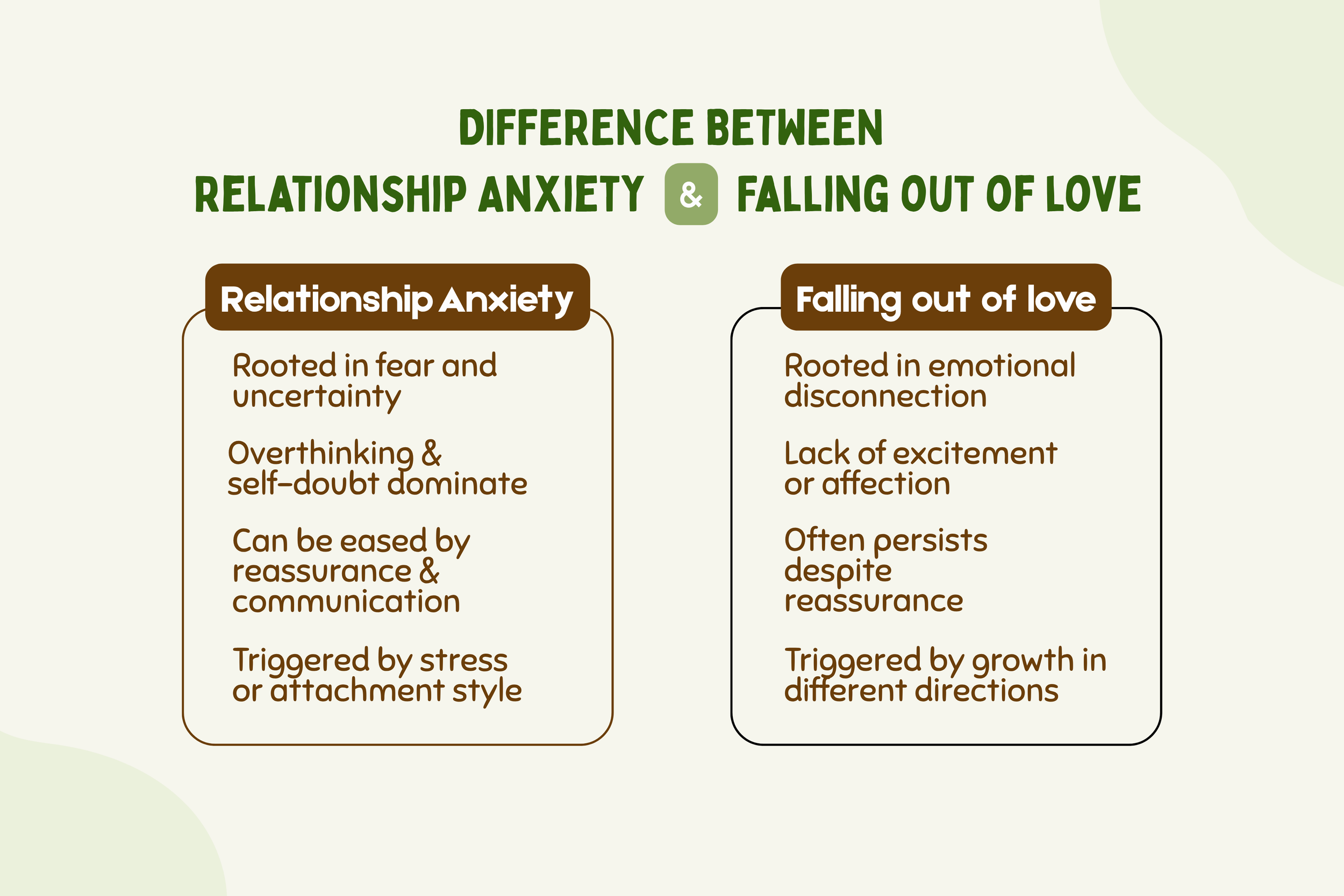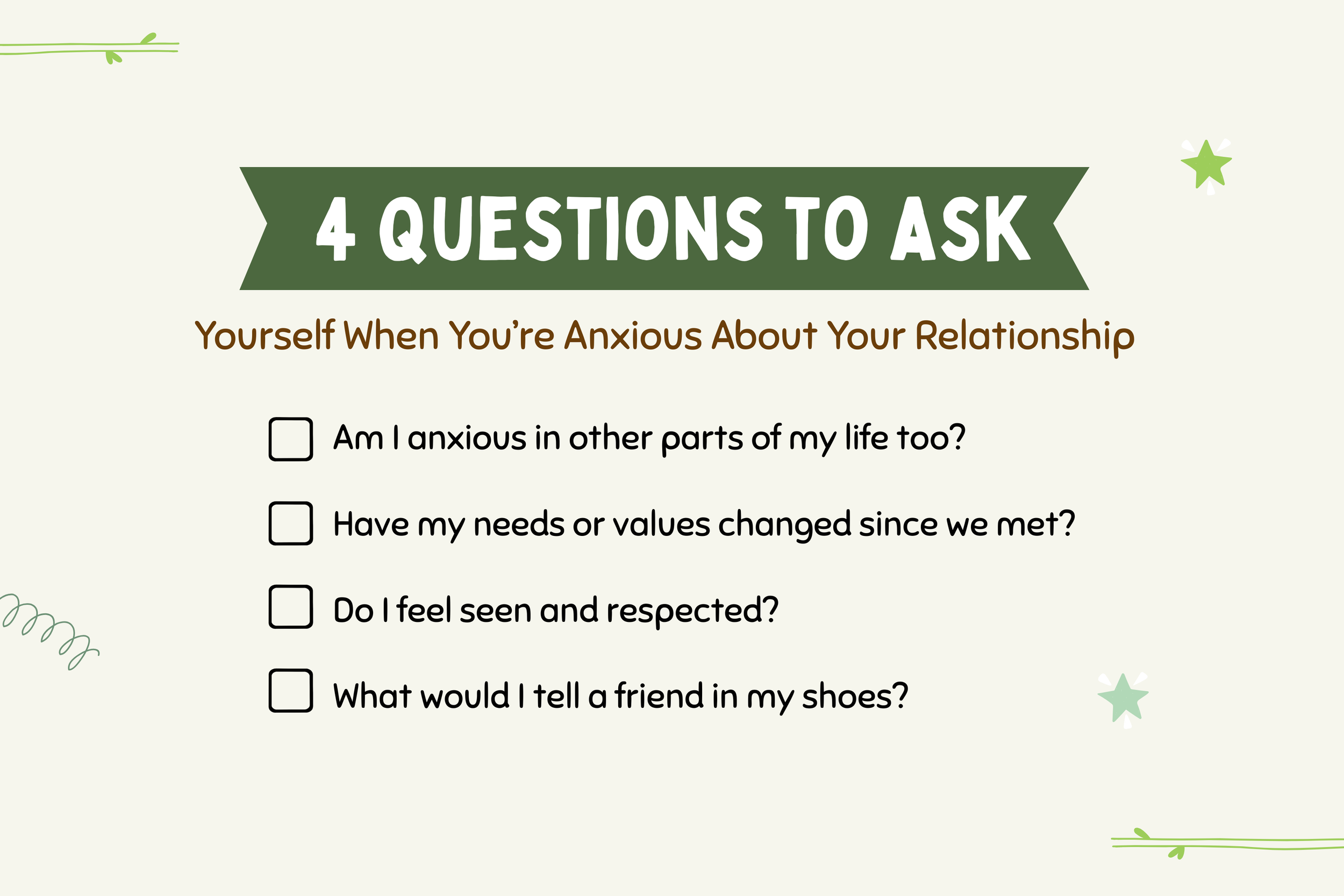Relationship Anxiety or Falling Out of Love? How to Tell the Difference
Joe Boyle
Nearly everyone who has been in an intimate relationship has faced this internal debate: Is this relationship coming to an end, or am I just overthinking it?
Yes, it’s confusing. Yes, it obsesses the best of us, even to the point of feeling paralyzed. But I’m here to confirm that, as scary as it can be, this is a normal conflict to grapple with, particularly in the context of therapy.
I’ve had numerous clients sit on my couch and give voice to the thoughts and feelings they wrestle with when they’re alone:
“I can’t tell if it’s me or them with the problem,” or
“Our relationship used to be so much simpler at the beginning,” or the classic
“…but when things are good, they’re really good.”
And while my client and I will dig deeper into the specific dynamics and contributing factors in their lives, I find it helpful to start by acknowledging the reality of it, which is that relationship anxiety is normal.
What Is Relationship Anxiety?
In all anxiety, there is an authentic kernel of truth somewhere deep down, and it points to legitimate needs and aspects of our identity.
Put simply, the health of an intimate relationship is an important thing, so it’s normal to be anxious about it from time to time.
KEY SYMPTOMS OF RELATIONSHIP ANXIETY
The key signs of relationship anxiety are often very similar to other forms of anxiety, just applied to one’s relationship. Some examples are:
nagging doubts about your partner’s feelings for you
persistent worry that you don’t measure up to their vision of you or meet their needs
intentionally, or unintentionally, sabotaging the relationship
overthinking your partner’s behaviors and statements, or reflexively interpreting them negatively
pervasive fear that your partner will break up with you
doubting your own feelings about your compatibility
Notice that many of these have intensifiers like “over “ or adjectives like “pervasive”. What separates “lower-case a” anxiety from “upper-case a” anxiety is how drastically the intensity and frequency of it outpace the objective severity of the situation.
At Thrive Therapy & Counseling, we provide a safe, supportive space to help you work through your thoughts, ease your mind, and build healthier ways to navigate your relationship. Connect with us here.
What Does Falling Out of Love Look Like?
Another truth in life is that even important, fulfilling things are not permanent. Just as it’s normal to have anxiety over relationships, it’s also normal for them to run their course, flicker out, or even be extinguished in painful ways.
Sometimes falling out of love takes a dramatic route, like when one’s partner cheats or is abusive or somehow seriously transgresses in the relationship, leading to a serious reconsideration of the viability of the partnership. But many times, it’s a more mundane experience, a slowly accumulating sense of being mismatched.
One thing to remember is that our perception of others changes because our perception of ourselves isn’t static either, especially during adolescence, young and middle adulthood.
If you have been with your partner for years, or even months, you’ve potentially done some significant growing since then, and maybe they have as well. It’s human to engage in a relationship before fully knowing the other person inside and out; in fact, it’s impossible not to.
A point I often find myself reaching with clients is acceptance of the fact that we grow, mature, and change in concert with others, not in isolation. And this means that we make mistakes with others, and we have effects on others. It’s messy, it sure isn’t fair, but it seems to be the way things work.
Relationship Anxiety vs Not in Love: The Key Differences
Some things to consider when discerning whether you are afflicted with relationship anxiety or confronting a major life transition:
Am I prone to anxiety in other areas of life?
If uncertainty is already your bugbear, or if you experience overthinking, mental filtering, or out-of-control worry in other life domains, you could be applying the same “script” to your relationship.
How have my identity and self-image changed since initiating this relationship?
It could be that you and your partner have grown in substantial ways since the start of your relationship, and if so, this may point toward more fundamental differences in your outlooks or expectations from life.
What exactly are the problems or doubts in my relationship, and what is their relationship to my values?
If you find that your ideas of how to live or how to treat others are being violated by your partner, it could be that you’re falling out of love.
At Thrive Therapy & Counseling, we provide a safe, supportive space to help you work through your thoughts, ease your mind, and build healthier ways to navigate your relationship. Connect with us here.
What to Do If You’re Unsure
I’m a therapist, so it may be no surprise that my first idea is: Talk to your therapist!
All jokes aside, it can be very helpful to have an outside perspective on the issue. That being said, it’s a good idea to talk to a friend or a trusted family member about the worries you are experiencing.
(Pro tip: Try not to think of this as burdening them. If they love or care about you, this is the kind of thing that will strengthen your relationship all the more.)
Another consideration is to let your partner in on your thoughts. They probably deserve to know what’s going on in your head and heart, and a frank conversation may clear away any potential misapprehensions.
On your own, it might be helpful to journal or even just take time and space for yourself to reflect, go for a walk, change your scenery. It’s hard to fix a leak in a boat if it’s still in the water.
Why Clarity Matters for You and Your Partner
A friend of mine (and another therapist here at Thrive) told me that awareness equals choice equals power.
The precursor to real change in your relationship—real change in your own life, for that matter—is shared knowledge. Getting on the same page. And this isn’t easy. Initiating a difficult conversation, risking an argument or rejection, is not something we instinctively seek out. Yet facing our fears is the vaccine that inoculates us to guilt, shame, and distrust.
It may be incredibly scary to share what’s in your head.
But if anxiety is where you’re at, what other place can you start from? My gut tells me that being open with your partner and honest with yourself will contribute to your own well-being.
If you are healthy on your own terms, that will not only redound to your own benefit but also enhance the well-being of everyone around you, from your closest friend to the random stranger you encounter on the street.




